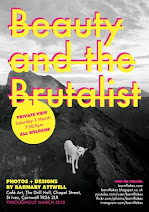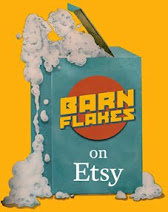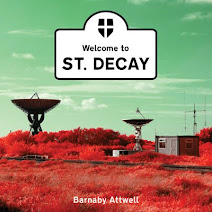It’s the names that do it for me: Los Angeles, Phoenix, San Francisco, Baton Rouge, New Orleans, conjuring up countless songs and movies. Somehow English place names – Coventry, Leeds, Birmingham, Sunderland or Liverpool – just don’t cut it. But, talking on the subject, an American friend had said to me: “What are you talking about, man? Liverpool, what the hell’s that, a pool of livers? That’s crazy, man.”
Anyway, Europe may have the buildings and the history, but the U.S.A. has the place names, the landscapes, the movies, the songs and the people. Its cities are exciting, dangerous, dynamic, always awake and always crazy.
I drifted down to New Orleans originally planning to stay just a week but ending up there for two and a half months, intoxicated by the sultry heat, spicy crawfish, coffee, sleaziness, romance, danger and irony of it all. There’s no need for crack when you can eat six raw oysters, down them with a Bud’ and walk around the French Quarter at 4am feeling like there’s no where else in the world. It’s said New Orleans has a strange pulling power, people come down for Mardi Gras or Jazz Fest and never leave. It’s a city to hang out in, do nothing in, listen to jazz or be a murderer and get away with it.
But The Big Easy isn’t big and it’s not easy.
My heart beat fast for my first two weeks there: I couldn’t relax. It may have been the copious amounts of coffee and chicory consumed (either at Café du Monde, where the waiters are either gay, drug addicts, alcoholics, murderers, child molesters or old Vietnamese colonels – New Orleans East has a Vietnam village), or Kaldi’s, just up the road, where homeless kids on acid hang out along with gays, goths and freaks). It may have been the headlines every day in the Times Picayune of at least five people having been shot the day before.
Or was the smell of coffee mixing with the smell of danger on every dimly lit street corner, mingling with the live music coming from every direction, twenty-four-seven. It didn’t calm me knowing New Orleans had just recently slipped to becoming murder capital number two of the U.S.A., pipped to the post by Gary, Indiana.
If only I had stayed just a week: I would have gone home with the city’s superficial impression as a non-stop party (there was a bar in New Orleans before there was a church). Seemingly always happening on Bourbon Street, that addictive neon vision of hell with its blaring bars, strip joints, pushers and hookers, tourists are adventurous if they leave the street, let alone the touristy French Quarter which is relatively safe, and white.
The French Quarter is stiflingly small, humid, crowded and claustrophobic, consisting of one square mile (the population of New Orleans is only 475,000, a tiny city with no hills, perfect for a bike), the streets arranged in a confusing (at first) grid structure of similar looking buildings: French-style apartments with wooden shutters, iron-laced balconies with hanging plants and plastic Mardi Gras necklaces, tacky tourist art galleries, voodoo and witchcraft shops, restaurants and gallons of bars. It has a heady charm and its buildings are well looked after, but there’s never any breeze and its sidewalks are smelly and dirty. Barely two hundred years old, for the tourists it’s called New Orleans historical district, and that’s all they need. Armed with cameras, camcorders and a plastic cup of $1 beer, tourists record the beautiful history-laden quarter, editing out any blacks, beggars or freaks who might accidentally get in the way. But what they don’t get is that the city
is the people, not the buildings.
But if wasn’t for the tourists New Orleans would surely sink back into the swamps from whence it came, and Louisiana is the second poorest state in the US, after Mississippi. Yet ask any local what they hate most about the city and before they mention the crime, the violence, the housing projects or the police corruption they will emphatically say: ‘the tourists’.
I wonder how American cities survive with their mass of contradictions and ironies. I love you, I hate you. The mood of New Orleans can change so quickly, so drastically. The city has the power to change people too, if they stay there for long enough. From virgin to whore, pacifist to murderer, teetotaller to alcoholic, sane to crazy, innocence to experience, or indeed vice versa. But the seediest, most decadent, often uncaring, murderous city in the US is often strangely spiritual and magical. And it has very little to do with voodoo, witches or Anne Rice.
It can be intense, nasty and unfeeling or it can be beautiful, warm, relaxing, friendly and caring, a community spirit rising from the poverty. I watch the sun rise over the Mississippi river with a beautiful black eighteen-year-old girl on the River Walk, we’re surrounded by the homeless sleeping on the grassy bank (you can be homeless and happy here), an accordion player with a blank look in her eyes plays the accordion badly, then an old black dude passes us and says we make a pretty couple and it’s like a dream.
Or we’re at the Joy cinema on Canal Street which only shows ‘black’ films and every other black guy asks me for a quarter and I get the dirtiest looks and they say things to me I can’t understand but I’m sure they’re wondering what this skinny white guy is doing with this beautiful black girl.
But I think I leave New Orleans less sexist and racist than I’ve ever been. I visit some friends who live near the railway track on North Rampart Street, maybe a mile out of the Quarter. Black kids are playing in the street, a water hydrant explodes water to cool them down and they’re laughing and playing without a care in the world. I pass old black dudes smoking on their verandas on a Sunday afternoon and we greet each other as you do in the English countryside. I think to myself this place has always been here, always been the same. Untouched and decaying beautifully. Buildings and signs from the thirties and forties, left alone to rust and decay. In late spring the moss growing along the telegraph wires, plants creeping up the wooden houses, as if it’s in tune with nature.
But New Orleans is either a living dream or a living nightmare. The housing projects are definitely not on any tourist agenda. Coming up Basin Street from Canal Street, on your left is the Iberville housing project, on the outskirts of the French Quarter (a drunken tourist makes a wrong turn and risks death), a little further up the Louis #1 cemetery, a tourist stop off point, but only in packs because Iberville surrounds it and a little plague advises to enter at your own risk. It’s opposite a police station.
Desire is the biggest housing project in New Orleans. It goes on for miles, never ending, modelled after German concentration camps, I’m told. 100% black with only half the ‘units’ occupied, the other half burnt down or boarded up. This is where the killings happen – black on black, in the housing projects. The projects aren’t talked about. The people in them are left alone to kill each other. The streets which intersect Desire are like a bad joke: Piety, Annunciation, Benefit and Charity.
Beside the Florida housing project is a church, a liquor store and a huge billboard, black lettering on white: THOU SHALT NOT KILL, the NOT underlined in case you had read THOU SHALT KILL by mistake. In the space of a block you can go from housing project to mansions, good neighbourhood to bad and it makes no sense.
Behind Café du Monde, late at night, are held monthly dogfights, organised by the cooks who work at the café. The losing dog gets a bullet in the head, delivered by one of the cops, who are there to watch and bet.
New Orleans: I love you and hate you, and I know you love and hate me too.
– 1996; submitted and rejected for a Time Out travel writing competition.




















